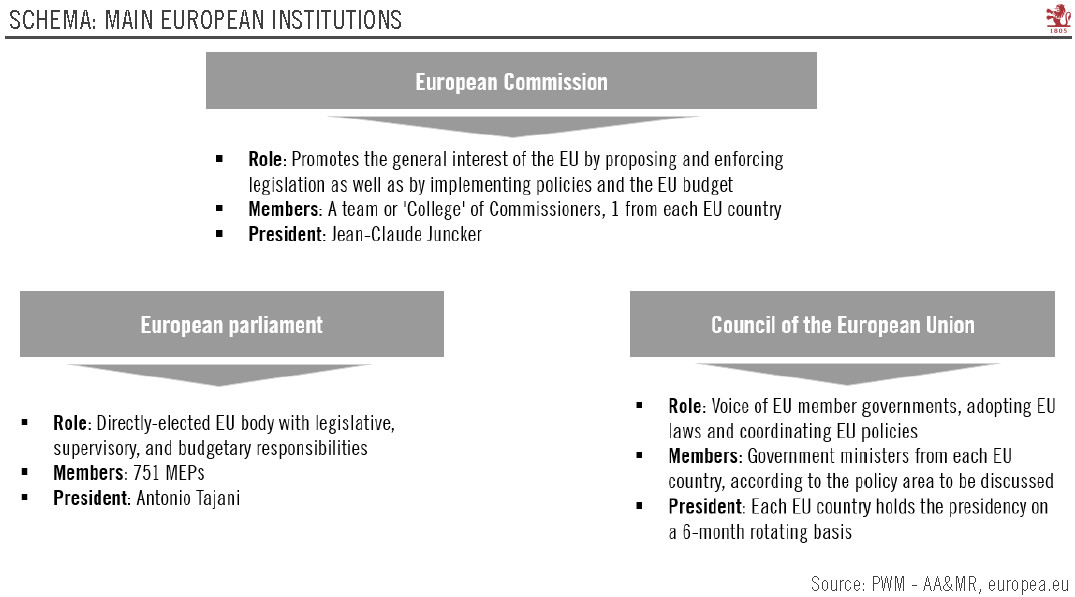|
European Parliament elections, to be held between 23 and 26 of May, will be a key political event in Europe. However, we expect limited short-term impact, given the European Parliament’s limited ability to set Brussels’ agenda. European Parliament (EP) elections will be a key political event in Europe, a form of ‘midterm election’ in which the electorates can state their approval or disapproval of their respective national governments. Turnout in EP elections has been on a downward trend over the past four decades, dropping from 62% to 43% since 1979. A crucial question is whether this downward trend will continue or not. The EP is one of the EU’s three main decision-making institutions, the others being the European Commission and the Council of European Union (CEU; referred to in the treaties and other official documents simply as the Council). Contrary to the EP, the CEU is not elected, but rather comprises government ministers that represent their national governments. Legislation relating to the single market, energy, transport, the environment, and consumer and data protection must be approved by both chambers. Together with the CEU, the EP votes on the European budget and free trade agreements. The EP elects the President of the Commission “by a majority of its members on a proposal from the European Council, which is obliged to select a candidate by qualified majority, taking into account the outcome of the European elections” (extract from the Lisbon Treaty). However, the EP’s ability to set the agenda in Brussels is severely limited. It cannot bring forward legislative proposals or trigger the decision-making process. The EU Commission is the only EU institution that has the right of initiative. This implies that even with a significant presence of EU-sceptical parties, the EP could not, for example, change the fiscal framework. However, if the EP achieves a majority among its members, it can request from the Commission the right to submit a proposal on a matter it considers of importance for the implementation of EU treaties. This is the reason why, in the short term, we expect the EP election results to have a limited impact on Europe. |
European Institutions |
Full story here Are you the author? Previous post See more for Next post
Tags: Macroview,newsletter




























